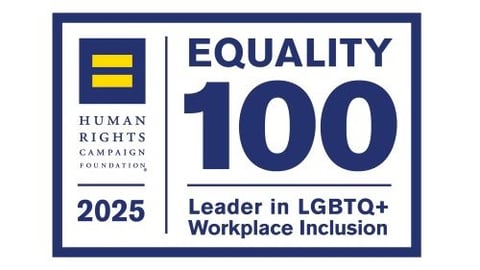Walmart Shareholders Urge CEO to Reconsider DEI Cutbacks
Long-term Walmart shareholders who have been engaging the company for decades to promote stronger policies to manage its environmental and social risks have sent a letter to CEO Doug McMillon on Jan. 14 to convey their disappointment regarding the retailer’s recent announcement that it intends to dismantle many of its diversity, equity and inclusion (DEI) initiatives and commitments.
The shareholders, many of them "faith- and values-based investors," have been engaging Walmart consistently for three decades and, as recently as the past two years, on material risks related to systemic racism, discrimination and inequity in its workforce via direct dialog and shareholder proposals.
In their letter to McMillon, the shareholders pointed out that Walmart acknowledged the benefits of DEI initiatives on its corporate website and through its annual reporting, noting, “When associates feel like they belong, they’re more engaged and empowered to deliver great service to our customers and members.”
But the group, representing $266 billion in assets under management or advisement, voiced concern that, after years of making progress on implementing policies to counter discrimination and foster more inclusiveness, Walmart has appeared to abruptly abandon these efforts in the face of threats from anti-DEI politicians and activists.
“From both a moral and a financial perspective, it is extremely disappointing to see Walmart roll back its commitment to advancing DEI within its workforce and operations,” said Caroline Boden, director of shareholder advocacy at St. Louis-based Mercy Investment Services, principal author of the letter and one of its 31 signatories. “DEI initiatives aren’t just ‘nice to have’, they are essential to breaking down the systemic inequities hindering our economy and preventing society from fully thriving. Inequity is bad for business and, ultimately, investors.”
According to the shareholders' letter: “Walmart has sent a clear signal to all underrepresented and marginalized groups that Walmart will not fight to protect their rights. In a time when there are threats to the rights of the LGBTQ+ community, threats of mass deportation of migrants, in addition to potential policies that may disproportionately harm people and workers of color, who make up over half of Walmart’s workforce, and low-income communities, it is imperative for Walmart to remain committed to its stated values of fostering a sense of belonging for everyone.”
Walmart isn’t alone in backtracking on its DEI programs. Other brands scaling down or dropping their DEI efforts include Meta, Amazon, Molson Coors, Tractor Supply, Caterpillar, John Deere, Lowe’s, Ford, Toyota and Harley-Davidson.
However, some companies aren’t bowing to the anti-DEI pressure, which has generally come from conservative activists. For example, Costco Wholesale Corp. is pushing back against National Center for Public Policy Research’s criticism against its DEI roles, policies and goals. The club retailer believes that its DEI efforts enhance its capacity to attract and retain employees who will inevitably help its business succeed. Apple is also continuing to back its diversity policies.
Rev. Seamus Finn, of the Missionary Oblates of Mary Immaculate, another signatory of the Walmart shareholders' letter, said that Walmart’s power and influence can’t be overstated when it comes to this issue. “As the largest private employer in the U.S., with an enormous list of suppliers worldwide, Walmart’s actions on so many issues of societal importance will be widely scrutinized and emulated by other companies for years to come,” he said. “It is well documented that robust DEI policies make for stronger companies by fostering more creative boards and more resilient workforces and supply chains. We will ask CEO McMillon and the Walmart board how they wish to be remembered: as a principled voice of moral and ethical business practices and an upholder of civil rights, or the cowed voice of submission and complicity with bullies dealing in intolerance and hate.”
Each week, approximately 255 million customers and members visit Walmart’s more than 10,500 stores and numerous e-commerce websites in 19 countries. With fiscal year 2024 revenue of $648 billion, the retailer employs approximately 2.1 million associates worldwide. Bentonville, Ark.-based Walmart U.S. is No. 1 on Progressive Grocer’s 2024 list of the top food and consumables retailers in North America. Issaquah, Wash.-based Costco operates approximately 900 warehouses, including 600-plus in the United States and Puerto Rico,100-plus in Canada, and 41 in Mexico. The company is No. 3 on The PG 100. Both Walmart and Costco were named among PG’s Retailers of the Century.






